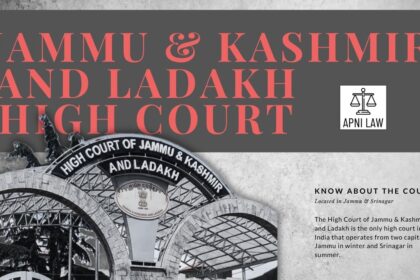Code
1[(1) In every inquiry or trial the proceedings shall be continued from day-to-day until all the witnesses in attendance have been examined, unless the Court finds the adjournment of the same beyond the following day to be necessary for reasons to be recorded:
Provided that when the inquiry or trial relates to an offence under section 376, 2[section 376A, section 376AB, , section 376B, section 376C, section 376D, section 376DA or section DB of the Indian Penal Code (45 of 1860), the inquiry or trial shall] be completed within a period of two months from the date of filing of the charge sheet.] .]
(2) If the Court, after taking cognizance of an offence, or commencement of trial, finds it necessary or advisable to postpone the commencement of, or adjourn, any inquiry or trial, it may, from time to time, for reasons to be recorded, postpone or adjourn the same on such terms as it thinks fit, for such time as it considers reasonable, and may by a warrant remand the accused if in custody:
Provided that no Magistrate shall remand an accused person to custody under this section for a term exceeding fifteen days at a time:
Provided further that when witnesses are in attendance, no adjournment or postponement shall be granted, without examining them, except for special reasons to be recorded in writing:
3[Provided also that no adjournment shall be granted for the purpose only of enabling the accused person to show cause against the sentence proposed to be imposed on him.]
4[Provided also that—
(a) no adjournment shall be granted at the request of a party, except where the circumstances are beyond the control of that party;
(b) the fact that the pleader of a party is engaged in another Court, shall not be a ground for adjournment;
(c) where a witness is present in Court but a party or his pleader is not present or the party or his pleader though present in Court, is not ready to examine or cross-examine the witness, the Court may, if thinks fit, record the statement of the witness and pass such orders as it thinks fit dispensing with the examination-in-chief or cross-examination of the witness, as the case may be.]
Explanation 1.–If sufficient evidence has been obtained to raise a suspicion that the accused may have committed an offence, and it appears likely that further evidence may be obtained by a remand, this is a reasonable cause for a remand.
Explanation 2.–The terms on which an adjournment or postponement may be granted include, in appropriate cases, the payment of costs by the prosecution or the accused.
STATE AMENDMENT
Chhattisgarh
In proviso to sub-section (1) of Section 309 of the Code, for the words, figures and letters “section 376, section 376A, section 376B, section 376C or section 376D”, the words, figures and letters “section 354, section 354A, section 354B, section 354C, section 354D, section 354E, section 376, section 376A, section 376B, section 376C, section 376D, section 376E, section 376F, section 509, section 509A or section 509B shall be substituted.
[Vide Chhattisgarh Act 25 of 2015, s. 11.]
Maharashtra
In section 309 of the Code of Criminal Procedure, 1973 (2 of 1974), in its application to the State of Maharashtra (hereinafter, in this Chapter, referred to as “the Code of Criminal Procedure”), after the existing proviso, the following proviso shall be added, namely:–
“Provided further that, when the enquiry or trial relates to an offence under section 332 or 353 (45 of 1860) of the Indian Penal Code, the inquiry or trial shall, as far as possible be completed within a period of six months from the date of filing of the charge sheet”.
[Vide Maharashtra Act, 40 of 2018, s. 4.]
Arunachal Pradesh
Amendment of section 309.–In the proviso to sub-section (1) of section 309 of the principal Act, for the words, figures and letters “section 376, section 376A, section 376B, section 376C or section 376D of the Indian Penal Code” the words, figures and letters “section 376, section 376A, section 376AA section 376B, section 376C, section 376D or section 376DA of the Indian Penal Code” shall be substituted.
[Vide Arunachal Pradesh Act 3 of 2019, s. 18]
Explanation
This section empowers the court to postpone or adjourn criminal proceedings for various reasons, such as:
- Absence of the accused or the witnesses
- Necessity for legal representation
- Complexity of the case
- Availability of documents and evidence
- Illness of the accused or the judge
- Any other sufficient cause
The court has the discretion to decide whether to postpone or adjourn the proceedings. It is also required to consider the interests of justice while making the decision.
Illustration
Suppose a witness in a criminal trial is suddenly taken ill and unable to attend the court proceedings. The court can, under Section 309 CrPC, postpone the trial until the witness recovers and is able to appear in court.
Common Questions and Answers
Q. What is the difference between postponement and adjournment?
A. Postponement refers to a delay in the commencement of the trial, while adjournment is a delay during the trial itself.
Q. Can the accused request a postponement or adjournment?
A. Yes, the accused can request a postponement or adjournment, but the court will decide based on the merits of the request.
Q. Can the court refuse a request for postponement or adjournment?
A. Yes, the court can refuse a request if it deems the reason insufficient or if it feels that it would prejudice the interests of justice.
Q. What happens if the court adjourns the proceedings indefinitely?
A. This is not allowed. The court must specify a date for the adjourned hearing, even if it is a long time in the future.







